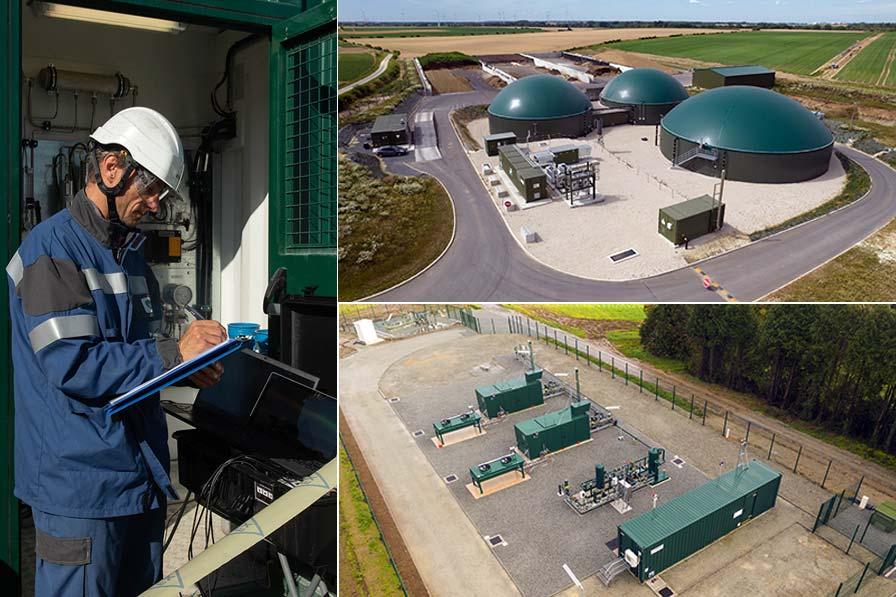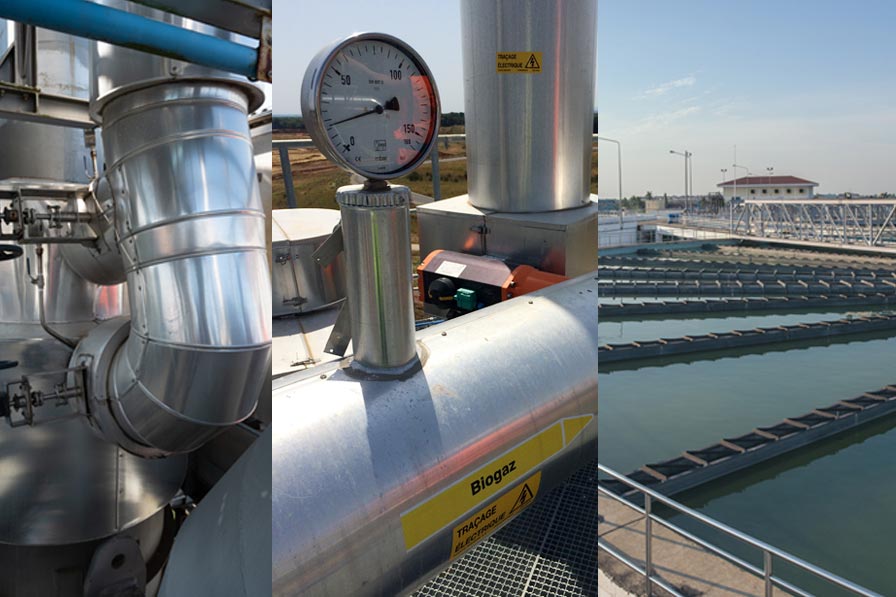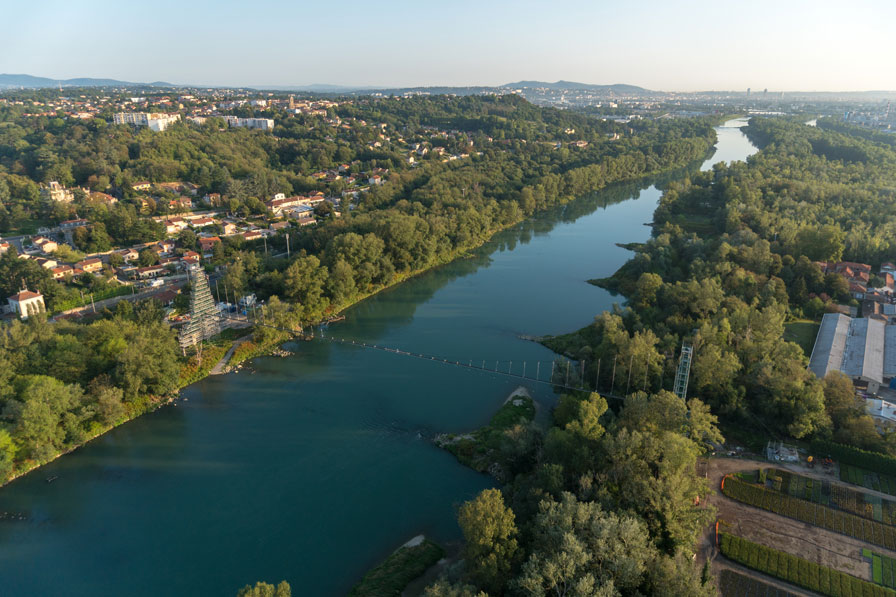Renewable gases: a major step towards energy independence for Pays de la Loire

On Thursday, 7 November, at the 12th Convention d’Affaires de la Méthanisation et des Gaz Verts (Methanisation and Green Gas Business Convention) organised by Biogaz Vallée® in Angers, Roland Marion, regional councillor responsible for the ecological and energy transition in the Pays de la Loire region, accompanied by Christophe Bellet, Deputy Director of GRDF’s Centre-Ouest Territories and Amaury Mazon, GRTgaz’s Centre-Atlantique Territorial Delegate, presented the progress that has been made in developing renewable and low-carbon gases in the region. The biogas industry has just passed the one terawatt-hour (TWh) mark in terms of installed capacity for injection into the gas distribution and transmission networks. An opportunity to highlight the importance of renewable gases in Loire’s energy landscape.
Pays de la Loire is a pioneering region in the energy transition. A growing number of projects are providing practical solutions to the climate challenge. The renewable and low-carbon gas industry, driven by a shared vision, is developing strongly and steadily. Today, the Pays de la Loire region is proud to announce that the installed capacity for injecting renewable gas into the gas distribution and transmission networks exceeds one TWh, equivalent to almost 6% of the region’s consumption in 2023. This symbolic milestone, achieved in less than ten years, testifies to the region’s dynamism in terms of energy transition and confirms its leading role in the development of renewable energies in France.
Biomethane production capacity installed on networks exceeds 1 TWh
This is equivalent to the annual gas consumption of almost 170,000 average homes. As the Pays de la Loire region points out, renewable gas is already a reality alongside other renewable energies such as wood energy, wind power and photovoltaics. The gas industry in Loire is now ready to accelerate the development of renewable gas, so that the region can meet its ambition of becoming a “positive-energy region” by 2050, with an intermediate milestone of more than 20% renewable gas by 2030.
Tangible benefits for the region
This huge development of renewable gases in the Pays de la Loire region is fully in line with the objectives of the energy transition, with several major positive impacts:
- Reduction in greenhouse gas emissions:
By producing local, low-carbon energy, the region is helping to reduce its carbon footprint while supporting national commitments to combat climate change. 1 TWh of renewable gas injected into the networks means almost 195,000 tonnes of CO2 avoided every year, contributing to the national objective of carbon neutrality by 2050. - Creation of jobs that cannot be relocated:
The biogas industry has already created more than 500 direct jobs in the region, in the construction, operation and maintenance of facilities. These locally-based jobs contribute to the region’s economic dynamism. - Stronger energy sovereignty:
Thanks to local renewable energy production, the region is reducing its dependence on imported fossil fuels and ensuring greater resilience in the face of energy market fluctuations. With energy production equivalent to almost 6% of the region’s gas consumption, Pays de la Loire is reducing its dependence on imported fossil fuels, ensuring greater resilience to fluctuations in the global market. The share of renewable gas by 2030, with the aim being to reach 20% nationally (data from the “Perspectives Gaz 2024” des opérateurs de réseaux proposant une trajectoire compatible avec les objectifs climatiques du plan européen Fit for 55) devrait représenter entre 25 % et 30 % sur le territoire de la Région Pays de la Loire. Cette évolution se base sur une augmentation de la production de biométhane en cohérence avec les dernières données communiquées sur la Stratégie Française Energie ClImat (SFEC) ainsi que sur un scenario de baisse significative de consommations à 2030 (-20 % par rapport à 2023 du fait des actions de sobriété, d’efficacité énergétique…).
A structured industry that creates jobs
The development of renewable and low-carbon gases is a real asset for the regions. They not only respond to environmental challenges, but also provide opportunities for local farmers and industries. Each anaerobic digestion project, each production unit, is a lever for employment and local economic dynamism, while at the same time ensuring the decarbonisation of uses, including in short loops. The many local initiatives around bioNGV are the first evidence of this, supported by numerous local authorities.
For all these reasons (energy transition, local development, energy sovereignty, territorial resilience), the Pays de la Loire region supports and encourages the development of the production and use of renewable gases, and helps to structure the associated ecosystems. In order to anticipate skills needs in a fast-changing field, to offer targeted, innovative and accredited training courses and to promote these courses to young people, jobseekers and employees undergoing retraining, the Region, the education authorities and a group of economic, training and academic players have set up the Sustainable Energy Campus.
The regional ecosystem is unprecedented compared with other regions. It is led by key players such as the Association d’Initiatives Locales pour l’Energie et l’Environnement (AILE), the Association Méthatlantique, the Association des Agriculteurs Méthaniseurs des Pays de la Loire, the Pays de la Loire Chamber of Agriculture and the members of the Entente des Territoires d’Energie. This ecosystem plays a key role in supporting and structuring the industry. These structures facilitate the emergence of new projects by supporting initiatives, producers, local authorities and companies in the renewable and low-carbon gas sector.

